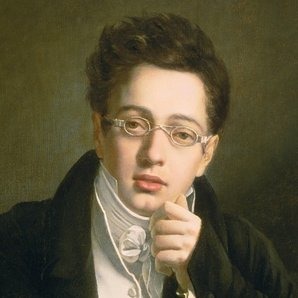 “Minors of the Majors” invites you to discover compositions by the great classical composers that for one reason or another have not reached the musical mainstream. Please enjoy, and keep listening!
“Minors of the Majors” invites you to discover compositions by the great classical composers that for one reason or another have not reached the musical mainstream. Please enjoy, and keep listening!
Franz Schubert’s relationship to the Catholic Church was at best ambivalent. In a letter to his parents in 1825, he writes “I have never forced myself to piety; and never compose hymns or prayers of that kind unless it takes me unawares; but then it is usually the right and true piety.” Regardless of his antipathy toward the established Church, Schubert professed a deep and spontaneous spirituality, which expressed itself gorgeously in his church music. At the age of eight he became a choirboy at the parish church in Lichtental, where Michael Holzer, a student of Albrechtsberger, taught him. By 1808, at the recommendation of Antonio Salieri, he became a chorister in the Imperial and Royal Chapel and remained in the choir until his voice broke in 1812. Over the span of his short life, Schubert wrote 39 works of sacred music giving voice to his personal piety and faith.
Franz Schubert: Mass No. 1 in F Major, D.105
His first complete mass setting was composed for the centenary anniversary of the Lichtental church, and possibly first performed in October 1814. Holzer served as choirmaster, Joseph Mayseder was the concertmaster, Schubert conducted and his brother Ferdinand played the organ. Antonio Salieri might actually have attended the premiere and after embracing his student, supposedly said to him “You will bring me yet more honour.” Significantly, the soprano solo was designed for Therese Grob, a neighbourhood lass Schubert had a significant crush on! The prominent first soprano solo, with its high tessiture, was specifically designed to showcase her voice. The work is scored for pairs of oboes, clarinets, bassoons, horns and trumpets, three trombones, timpani, strings and organ. It is an amazingly accomplished work for a 17-year old composer. In the extended solo sections in the opening “Kyrie” and the “Agnus Dei” we already find glimpses of Schubert’s special lyrical gifts.
You May Also Like
- Minors of the Majors
Robert Schumann:
Introduction and Concert Allegro, Op. 134 Here then is the question of the day. How much of Robert Schumann’s music do you actually know? - Minors of the Majors
Wolfgang Amadeus Mozart:
Les petits riens (The Small Things), K. 299b After crisscrossing Europe in an almost desperate search for gainful employment, Wolfgang Amadeus Mozart was eventually appointed official court composer in Vienna. - Minors of the Majors
Sergei Rachmaninoff: Suite in D minor In 2002, scholars found an unknown four-movement composition by Rachmaninoff in the depths of the Glinka Museum Archives in Moscow. - Minors of the Majors
Modest Mussorgsky: Dawn on the Moscow River Impoverished and evicted from his flat for failure to pay rent, Modest Mussorgsky once again sought refuge in the bottle.
More Anecdotes
- Bach Babies in Music
Regina Susanna Bach (1742-1809) Learn about Bach's youngest surviving child - Bach Babies in Music
Johanna Carolina Bach (1737-81) Discover how family and crisis intersected in Bach's world - Bach Babies in Music
Johann Christian Bach (1735-1782) From Soho to the royal court: Johann Christian Bach's London success story - A Tour of Boston, 1924
Vernon Duke’s Homage to Boston Listen to pianist Scott Dunn bring this musical postcard to life

This is a remarkable work written by Schubert still in his teens. His masses deserve to be heard more often.